Pêche Responsable : La CAOPA forme 33 capitaines de pirogues de Potou et Lompoul
La pêche artisanale, pilier vital de l’économie sénégalaise, se trouve à un carrefour critique. Pour relever les défis de la sécurité en mer et de la gestion durable des ressources halieutiques, la Confédération Africaine des Organisations Professionnelles de la Pêche Artisanale (CAOPA) a organisé un atelier de formation du 31 juillet au 1er août 2023. Les capitaines de pirogues de Louga (Potou et Lompoul) ont saisi cette opportunité pour renforcer leurs compétences et leur engagement envers une pêche responsable et durable.
Objectif : Sensibilisation et Engagement
L’atelier a pour mission de sensibiliser les capitaines sur les enjeux sécuritaires en mer, la réglementation des ressources halieutiques et l’importance cruciale de préserver l’écosystème marin. Les objectifs spécifiques ont guidé les participants tout au long de ces deux jours :
– Sensibilisation aux mesures de sécurité en mer
– Compréhension de la réglementation des ressources halieutiques
– Mise en avant de la sélectivité des engins de pêche pour une pêche responsable
– Renforcement de la prise de conscience de l’exploitation durable des ressources
Président l’ouverture de des travaux, le représentant du sous-préfet de Sakal, Louga, a salué l’initiative de la CAOPA pour l’organisation de cet atelier, qui, selon lui, est une première dans sa juridiction.
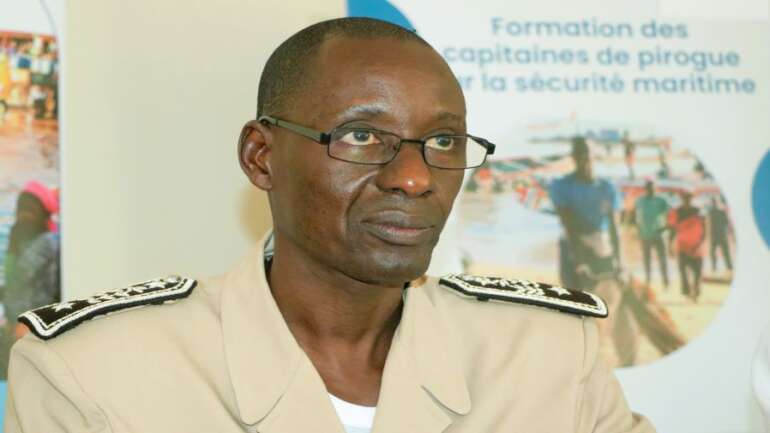
Elhadji Kébé estime que cette formation « permettra de renforcer les capacités des jeunes capitaines de pirogues de Lompoul et Potou en matière de gestion responsable des ressources halieutiques, de la sécurité en mer et une meilleure implication dans le respect des lois et règlements en vigueur. »
Selon lui, l’atelier donner aux participants des capacités pour mieux assimiler leur responsabilité dans leur domaine d’action.
De son côté, le président de la CAOPA a souligné les motifs ayant conduit à organiser une telle formation.
« Aujourd’hui, nous sommes en train de dénombrer beaucoup d’accidents, des morts et des disparitions en mer. Je ne dis pas que c’est la responsabilité des capitaines. Mais j’estime que s’ils sont bien formés et informés pour savoir manager leurs équipages, ça peut limiter ce que nous observons », a dit Gaoussou Gueye.
Il a interpellé l’État du Sénégal à identifier les capitaines, leur doter d’une carte professionnelle et de les permettre d’avoir une formation requise avant de devenir capitaine de pirogue.
Gaoussou Gueye propose aux autorités chargées de la pêche de créer un centre de formation dédié à la pêche artisanale. Car, « Il ne faut pas seulement limiter la sécurité en mer sur les gilets de sauvetage. C’est depuis la conception jusqu’à la mise à l’eau », a ajouté le numéro un de la CAOPA.
Le Président Gueye rappelle que cette formation a été déroulée dans d’autres pays de la CEDEAO, notamment en Côte d’Ivoire, au Sénégal et en Gambie.
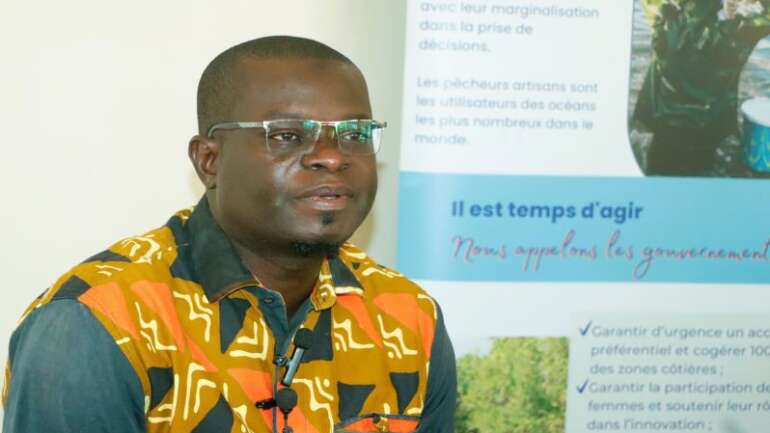
Pour l’inspecteur régional des pêches et de la surveillance de Louga, cette formation « va contribuer à diminuer les accidents en mer et à améliorer les conditions de travail des pêcheurs ».
Abdoulaye Diédhiou affirme que cette formation est ‘’particulière’’. Selon lui, « les capitaines de pirogues sont les premiers responsables de la sécurité de l’équipage et de la conduite de la pirogue. Ce sont eux qui sont également responsables de la bonne gestion de la pêche ».
DÉFIS
L’inspecteur indique que la pêche maritime est devenue un secteur très complexe. Puisque que c’est un secteur dynamique qui évolue rapidement dont les défis sont entre autres :
« Une flotte locale faible ; des techniques de pêche non diversifiées ; l’absence d’infrastructures de conservation fonctionnelles ; des conflits fréquents entre pêcheurs ; la destruction des filets par les navires ; l’accès difficile au quai de pêche de Potou; le non aménagement des sites de transformation, etc. »
Cérémonie de Clôture et Témoignages
La cérémonie de clôture a été marquée par des témoignages éloquents de participants. Ousmane Sow, le coordinateur du conseil local de la pêche artisanale (CLPA) de Potou, partage : “Cette formation a ouvert nos yeux sur de nouvelles pratiques qui peuvent vraiment changer la donne pour nous, les pêcheurs. Nous avons appris à mieux gérer nos ressources et à assurer notre sécurité en mer.”
Omar Ba, pêcheur, exprime : “Recevoir une carte professionnelle est un grand pas en avant pour nous. Cela va nous aider à être mieux reconnus et respectés dans notre métier. Grâce à cette formation, nous sommes maintenant mieux fournis pour faire face aux défis de la mer et pour contribuer à une pêche durable.”
Des Recommandations pour un Avenir Meilleur
La CAOPA a également mis en avant des recommandations cruciales pour l’avenir de la pêche au Sénégal. Gaoussou Gueye, président de la CAOPA, estime qu’il est essentiel d’investir dans la formation continue des capitaines et les doter de cartes professionnelles. Car, la sécurité en mer doit être un effort de collaboration, de la conception à la mise à l’eau.
Cet atelier marque un tournant majeur dans la quête d’une pêche artisanale plus sûre, durable et respectueuse de l’environnement. Les participants sortent de cette formation avec de nouvelles compétences, une vision élargie et une mission renforcée pour préserver les trésors de la mer.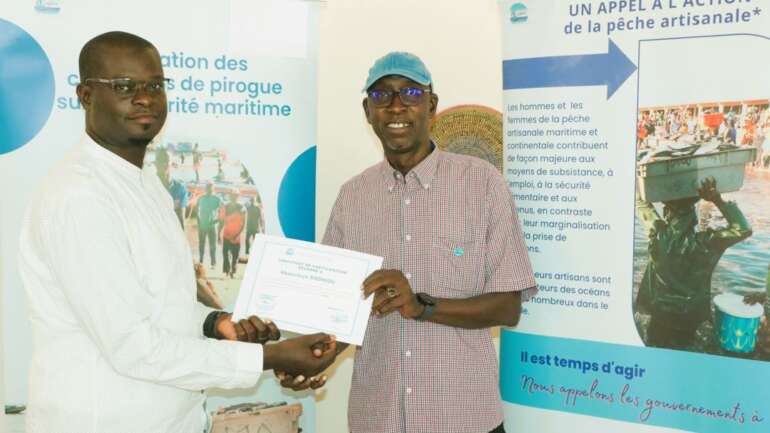
Aliou DIALLO



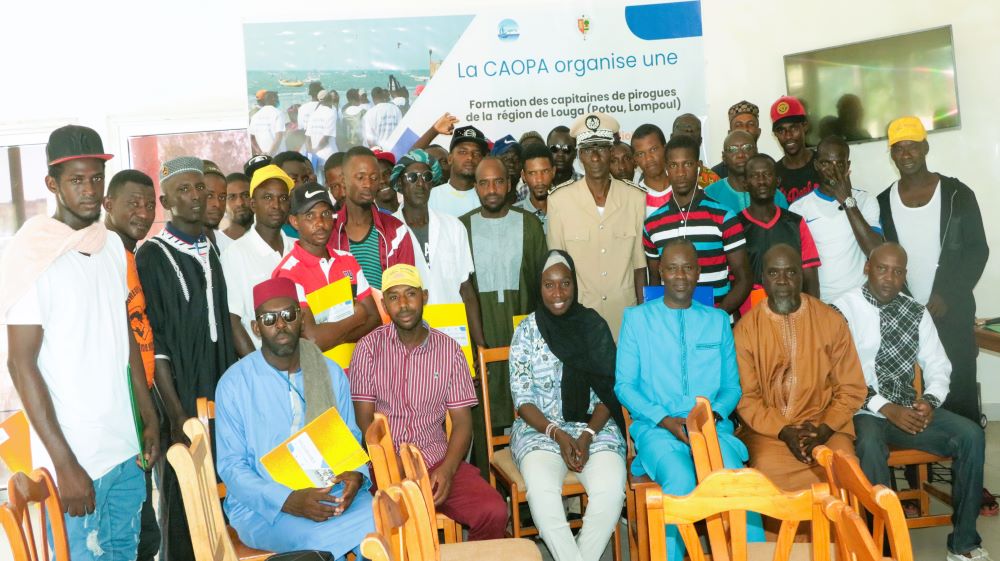









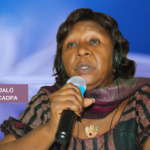
Comments are closed